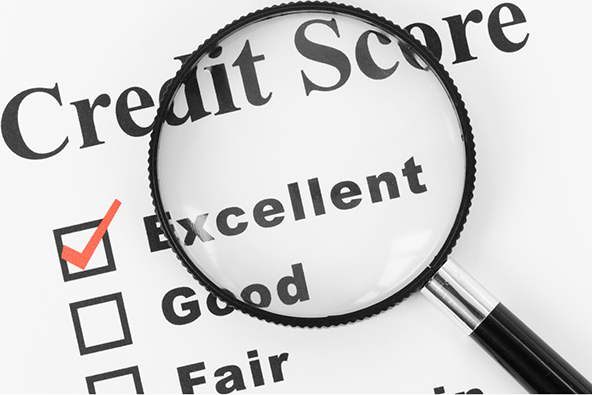Education, Fear of Debt and Credit Scores

There have been a number of recent studies that have established a strong correlation between demographic characteristics such as age, educational level and race and consumers’ credit scores and financial behavior in the U.S. Some findings are more intuitive than others, but all of them have interesting implications.
Going over these papers, I found myself beginning to modify my long-held position on the amount of control people have over their credit scores. I’ve always believed, and still do, that there is a very straightforward set of rules for maintaining a solid FICO score that everyone can follow, irrespective of their demographics. At its core, maintaining a good credit score is all about living within your means and that is all people need to do. Life, however, tends to complicate things. I learned, for example, that consumers with a larger family size have lower credit scores. And of course that makes sense, not just because having more children leads to a lower per-capita family income, but also because there is a greater probability for some adverse event (say, an illness) that would necessitate emergency borrowing, damaging the parents’ credit scores in the process. What do you do about that? You can’t just reduce your family size. And then there is education, which is one of the most important determinants of financial behavior and one over which we should have somewhat more control. But it seems that our best weapon for improving credit scores could be a basic human condition.
How Age, Education, Income and Race Affect Your Credit Score
Here is what two Fed researchers – Fumiko Hayashi and Joanna Stavins – found in a recent paper:
Older consumers and higher-income earners tend to have a higher credit score. Consumers with lower educational level than a college degree tend to have a lower credit score; however, after controlling for financial difficulty variables and card status, the effects of less than high school and high school dummies become insignificant. Contrary to the finding in Avery et al. (2010), black consumers tend to have a lower credit score. The discrepancy may arise from the fact that the SCPC contains some – but not all – financial difficulty variables that comprise the FICO score, and the possibility that race may serve as a proxy for the omitted variables. Consumers who were separated or divorced have a lower credit score than married consumers. Consumers with a larger household size are more likely to have a lower credit score. Having Internet access at home is positively correlated with credit score.
As I said, some of these findings are more intuitive than others. Now, there are things to be said about each of these factors, but what I find particularly interesting is the relationship between education and credit scores. Another recent paper — by Shawn Cole, Anna Paulson, and Gauri Kartini Shastry — gives us some specific data on the effects of education on consumers’ borrowing and credit behavior:
Some of these effects are less dramatic than the effect of education on financial market participation: an additional year of schooling raises an individual’s credit score by 8 points (roughly 9% of a standard deviation). Others are even more dramatic: one year of schooling reduces the probability of bankruptcy by 3.3 percentage points, from a base of 14.4%.
So it seems that all we have to do is educate ourselves just as highly as possible and we will be in good shape. But then the researchers quickly dampen our enthusiasm by reminding us that not everyone has the right “innate cognitive abilities,” which they’ve found to matter for a greater number of financial instruments than the “acquired abilities.” So there is, after all, only so much that education can do for us.
The Takeaway
We do know that the Great Recession took its toll on Americans’ credit scores and there is no recovery in sight yet. However, as mortgage foreclosures have fallen to their lowest level since before the crisis began and credit card delinquency and charge-off levels are now in record-low territories, we do get a reason to hope for better news in the months to come. Yet, rather than being the result of improved education, rising credit scores are likely to be the byproduct of the fear of debt that has been gripping Americans since the fall of Lehman and that is showing no signs of dissipating. Fear is indeed a powerful motivator.
Image credit: Pixmule.com.



“But then the researchers quickly dampen our enthusiasm by reminding us that not everyone has the right “innate cognitive abilities,” which they’ve found to matter for a greater number of financial instruments than the “acquired abilities.””
So the more stupid among us have no chance to raise their credit scores. I could figure this out without the help of Fed economists.
Taking care of your credit score is as simple as anything. Just pay your debts on time all the time and you will never have to worry about “damaging” your credit score or anything like that.
“One year of schooling reduces the probability of bankruptcy by 3.3 percentage points, from a base of 14.4%.”
So if I’m reading this correctly, just one less year in school increases the chance of bankruptcy by close to 25%. I wonder if we are talking about high school or college?
Consumers should obsess too much over their credit scores in this economy. Credit scores are needed when for taking out a loan and are most important for mortgages. The thing is that not many are looking to buy a house.
There is another factor that can damage your credit score – fraud. I had a fraudulent transaction processed on a Discover card that I haven’t used in years and it took 3 months for me to find out about it because I’ve signed up for online statements which I never check. So I received a letter from Discover telling me that my account is overdue. It took another 6 weeks to get the whole thing sorted out but by then my Discover account was listed on my credit reports as past due. So I am now working on fixing that but I don’t know what the end result will be.
I had to deal with a similar problem last year and ended up contacting each of the credit bureaus and asking them to update the information on my credit reports. Before that I tried to get this fixed through Chase, which was my credit card company, but it didn’t work. They kept telling me that they would take care of it but they never did.
The same thing happened to me too some time ago and it was a nightmare removing it from my credit report. If you don’t need to take out a loan you can wait it out but in my case I was buying a car, which is when I found out about the issue.
When unemployment is at more than 8% the average credit score will drop, that’s inevitable. There are many more people with insufficient income to meet their needs than before the recession. So that’s not a surprise.